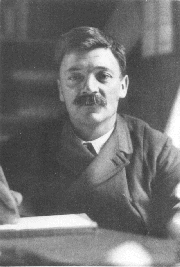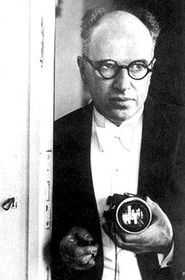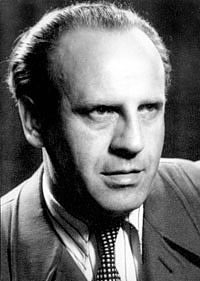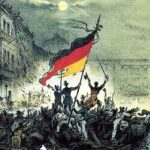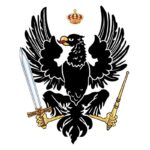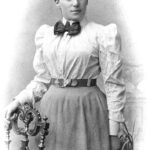April 28, 1849
On this date the Prussian king Friedrich Wilhelm rejected the title of “Kaiser” as offered to him by the Frankfurt Parliament a month before. He also rejected the new constitution of the parliament, finding it to be subversive.
April 28, 1853
Death of Ludwig Tieck in Berlin, a leading writer and theorist of the romantic period of literature.
April 28, 1868
Birth of Hermann Lietz in Dumgenewitz, Germany. Lietz was an educational reformer. Impressed with the Abbotsholme model in England, he established similar schools in Germany which combined individual instruction with physical education.
April 28, 1886
Birth of Erich Salomon (1886-1944) in Berlin, Germany. Salomon was a photographer who specialized in candid photographs of politicians and celebrities. He was the first to break with the tradition of showing leaders only in formal poses. At one point he was called “the king of indiscretion”. As the world grew accustomed to this kind of photography, however, he developed a global reputation (and opened the way to this kind of photography becoming the norm in the 20th Century). He published a collection of his photos in Berühmte Zeitgenossen in unbewachten Augenblicken” in 1931. When the Nazis came to power he fled to the Netherlands but was discovered there, and sent to the concentration camp in Auschwitz where he was murdered.
April 28, 1896
Death of the historian, Heinrich von Treitschke, in Berlin, Germany. Treitschke was a professor of history and political science at the Universities of Leipzig, Freiburg, Kiel, Heidelberg and Berlin. He was a strong advocate of German unification as a rebirth of the Holy Roman Empire under Prussian leadership. His philosophy of political structure was authoritarian.
April 28, 1906
Birth of Kurt Gödel in Brünn, Austria. Gödel was a mathematician who developed “Gödel’s proof” which shows that mathematics can have internal contradictions. This has had a heavy impact on the understanding of mathematics in the 20th Century. Gödel was professor of mathematics at the University of Vienna. He immigrated to the United States in 1940 where he worked at the Princeton Advanced Study Institute. The Gödel proof was published in Monatshefte für Mathematik und Physik, vol. 38 in 1931.
April 28, 1908
Birth of Oskar Schindler who saved more Jews from the gas chambers than any other person during World War II.
Back to Today in German History Calendar
